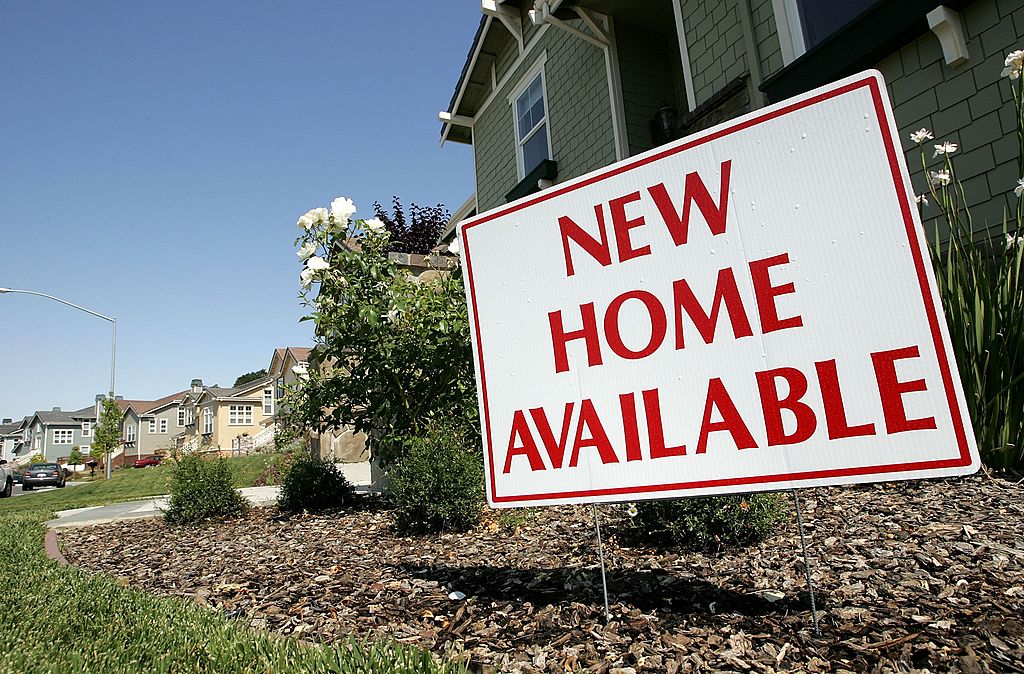First-time homebuyers priced out
And more of the week's best financial insight

A free daily email with the biggest news stories of the day – and the best features from TheWeek.com
You are now subscribed
Your newsletter sign-up was successful
Here are three of the week's top pieces of financial insight, gathered from around the web:
First-time homebuyers priced out
A home has never been this out of reach for first-time buyers, said Anna Bahney at CNN. "First-time buyers made up just 26 percent of all homebuyers in the year ending June 2022," according to the National Association of Realtors, the lowest percentage in the survey's 41-year history. The pandemic led to a supersurge in home prices as workers fled urban dwellings. Mortgage rates then started rising rapidly last spring, heaping more costs on potential buyers. It was rare for any buyer to pay less than asking price, the NAR found, "with 28 percent of buyers" paying over the listed amount. The lack of affordable properties bumped the average age of a first-time buyer up to 36, another all-time high.
The Week
Escape your echo chamber. Get the facts behind the news, plus analysis from multiple perspectives.

Sign up for The Week's Free Newsletters
From our morning news briefing to a weekly Good News Newsletter, get the best of The Week delivered directly to your inbox.
From our morning news briefing to a weekly Good News Newsletter, get the best of The Week delivered directly to your inbox.
Americans turn to credit cards
Consumers are reaching for their plastic again at pre-pandemic rates, said Sarah Hansen in Money. "After two years of extra savings and prudent credit card usage," card balances rose to $916 billion in September, according to Equifax. "The last time balances were this high was in December 2019." A little more than a year and a half ago, in April 2021, balances were almost $200 billion lower, "as consumers pulled back on spending in the early days of the crisis and government stimulus checks helped them pay down debt." Equifax's research leader said Americans' current spending rate remains "healthy," considering how prices have soared in recent months. But those now spending above their means could quickly face a spiraling situation: The average credit card interest rate was 18.4 percent in August.
Rising health insurance costs
Job-based health insurance premiums are expected to go up significantly next year, said Ann Carrns in The New York Times, after barely budging in 2021. Employers surveyed by human resource consultants estimated that their health-care costs will increase 6 percent on average next year, thanks partly to inflation and also to "a return by patients to pre-pandemic levels of doctor visits." This year, workers on average are paying $6,106, or about $509 per month, for health-care coverage. Despite the anticipated increase, most employers said they are hesitant to raise costs on employees given the tight labor market. In HR consultant WTW's survey of 455 employers, "just a quarter said they planned to shift costs to workers through higher premium contributions."
A free daily email with the biggest news stories of the day – and the best features from TheWeek.com
This article was first published in the latest issue of The Week magazine. If you want to read more like it, you can try six risk-free issues of the magazine here.
-
 The mystery of flight MH370
The mystery of flight MH370The Explainer In 2014, the passenger plane vanished without trace. Twelve years on, a new operation is under way to find the wreckage of the doomed airliner
-
 5 royally funny cartoons about the former prince Andrew’s arrest
5 royally funny cartoons about the former prince Andrew’s arrestCartoons Artists take on falling from grace, kingly manners, and more
-
 The identical twins derailing a French murder trial
The identical twins derailing a French murder trialUnder The Radar Police are unable to tell which suspect’s DNA is on the weapon